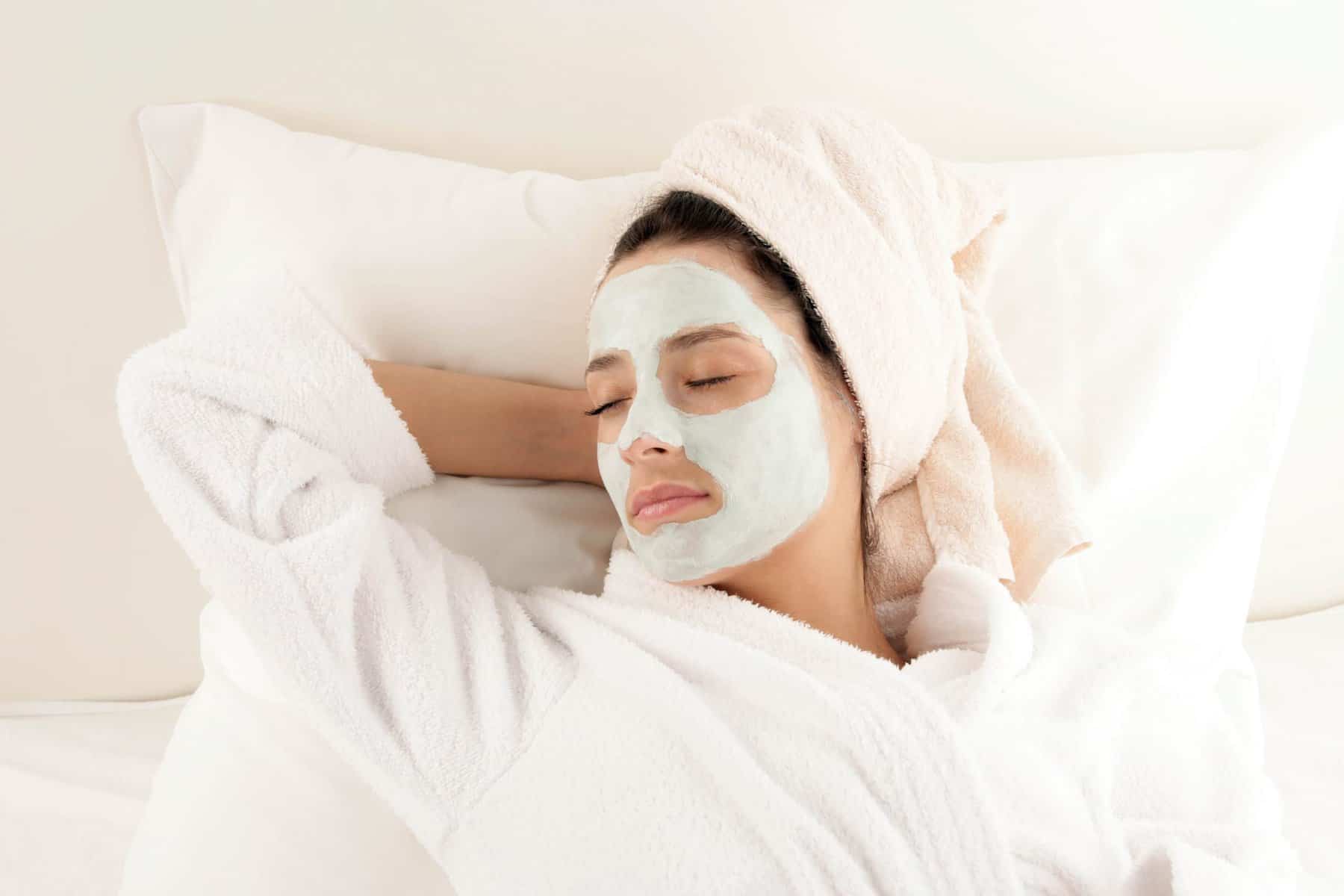Are you tossing and turning at night, wondering, “Does exercise help with sleep apnea?” You’re not alone! Many people face sleep apnea, a tricky condition where breathing pauses during sleep. It can make you feel tired the next day. Guess what?
Exercise is a simple, fun answer to this big question. Let’s dive in and find out how moving your body can lead to better sleep and sweeter dreams, even with sleep apnea.
Get ready to be amazed at what some exercise can do for a good night’s rest!
Exercise As A Remedy
Cardiovascular Benefits
When we exercise, our heart gets stronger. Regular exercise pumps blood better and helps the whole body. A strong heart means less strain when breathing at night for those with sleep apnea. So you can enjoy deeper, more restful sleep.
Weight Loss Connection
Moving more can help you shed extra pounds. Why does this matter for sleep apnea? Less weight often means fewer breathing problems when you’re asleep. Many people find their sleep apnea improves as they lose weight.
Exercise is a great way to start this positive change!
Increased Energy Levels
You think working out will make you tired. But it’s the opposite! Regular physical activity boosts your energy. When you have more energy during the day, you sleep better at night.
This improved sleep can lessen sleep apnea symptoms, helping you wake up feeling fresh.
Respiratory Function Improvement
Exercise doesn’t just work your muscles; it trains your lungs, too. Walking or swimming makes your lungs work harder, strengthening them over time. Stronger lungs mean better breathing, day and night. This is a big help for those battling sleep apnea.
Muscle Tone Enhancement
Lastly, exercise tones your muscles, including those you use to breathe. Stronger breathing muscles help keep your airways open when you’re sleeping. For someone with sleep apnea, this means fewer interruptions in breathing and a more peaceful night’s sleep.
Types Of Beneficial Exercises
Aerobic Exercises
Aerobic exercises are activities like walking, running, swimming, or cycling. They make your heart beat faster, and your lungs work harder. This improves your overall fitness and can help reduce sleep apnea symptoms.
Just 30 minutes a day can make a big difference in your sleep quality!
Strength Training
Lifting weights or doing bodyweight exercises like push-ups helps build muscle. Stronger muscles can improve your posture and reduce extra weight. Both of these changes are good for easing sleep apnea.
You don’t need heavy weights; simple strength exercises are very effective.
Yoga And Flexibility
Yoga isn’t just about bending and stretching. It helps you control your breathing, relax, and improve your body’s strength and flexibility. These changes can make a huge difference in your sleep quality.
The calming effect of yoga also helps clear your mind for a better night’s rest.
Breathing Exercises
Simple breathing exercises can train your lungs and improve how you breathe. For someone with sleep apnea, this can mean fewer problems during sleep. Try exercises like deep belly breathing or guided breathing sessions.
These can make your respiratory system stronger and help you sleep more peacefully.
Starting An Exercise Routine
Consulting Healthcare Providers
Before jumping into any new exercise plan, talking to a doctor or healthcare expert is smart. They can give advice based on your health and sleep apnea. They also suggest the best types of exercise for you.
It’s a safe first step to ensure your exercise plan is good for your body and sleep.
Setting Realistic Goals
When starting, set goals you can reach; don’t push too hard too soon. Let’s begin with a short walk or a few yoga poses daily. Little by little, you can do more.
Achieving small goals can make you feel great and keep you motivated.
Maintaining Consistency
The key to success with exercise is doing it regularly. Try to make exercise a normal part of your day, like eating or sleeping. It doesn’t have to be a long or hard workout.
Even in short, daily activities can lead to big improvements in sleep apnea. Stick with it, and you’ll likely see a positive change in your sleep!
Monitoring Progress
Sleep Quality Assessment
Monitor how you sleep to see if your exercises are helping. Are you waking up less at night? Do you feel more rested in the morning?
You can write these things down in a sleep diary or a sleep-tracking app. Watching your sleep improve can be encouraging!
Exercise Performance Tracking
Keep track of your exercise, too. Note down how long you walk, how many push-ups you do, or how long you hold a yoga pose. Watching your exercise performance get better over time is exciting.
It shows how much your hard work is paying off.
Adjusting Routines Accordingly
You should change your routine as you get better at exercising and sleeping. Try a little more if something feels too easy. It’s okay to take it easy if you’re getting tired.
The best exercise plan fits how you feel and what you need. Keep it fun and challenging; your sleep apnea can improve even more!
Other Complementary Practices
Healthy Diet
Eating well goes hand in hand with exercise. Foods rich in vitamins, minerals, and fiber, like fruits, vegetables, and whole grains, support a healthy body and better sleep. Avoiding heavy or sugary foods before bed can also help reduce sleep apnea symptoms.
A balanced diet keeps you energized and ready for exercise!
Stress Management
High stress can harm your sleep and worsen sleep apnea. Practices like mindfulness, meditation, or just doing hobbies you love can lower stress. When you’re less stressed, your body can relax more at night, leading to deeper sleep.
Plus, handling stress better can make sticking to your exercise routine easier.
Good Sleep Hygiene
Good sleep hygiene means having a bedtime routine and a sleep-friendly environment. Keep your bedroom dark, cool, and quiet. Stick to a regular sleep schedule, even on weekends. Avoid screens before bed, as the light can make sleeping harder.
Creating a cozy, calm space helps your mind and body restfully, strengthening your fight against sleep apnea.
FAQs
1. Can Sleep Apnea Be Fixed With Exercise?
Yes, exercise can help with sleep apnea. It does not cure it for everyone, but it often makes things better. When you exercise, you strengthen your heart and breathing muscles and lose weight. All these can reduce sleep apnea symptoms.
2. Can Lack Of Exercise Cause Sleep Apnea?
Not exercising doesn’t directly cause sleep apnea, but it can lead to problems like weight gain. When you’re heavier, you have more trouble breathing at night. So, staying active is important to help prevent sleep apnea or make it less severe.
3. How I Naturally Cured My Sleep Apnea?
Many people have eased their sleep apnea by natural means like staying active, keeping a healthy weight, practicing good sleep habits, and exercising to help with breathing. These steps can make a big difference.
Conclusion
Exercise does help with sleep apnea. Regular exercise strengthens your heart and lungs, helps you lose weight, and even improves your breathing at night. All these changes mean you can have a better, more peaceful sleep.
Remember, it’s not just about doing hard workouts; even light activities like walking or gentle yoga can make a huge difference. Start small, keep at it, and soon, you will see a real change in your sleep.
Exercise is a simple, fun way to beat sleep apnea and enjoy dreamy nights!

